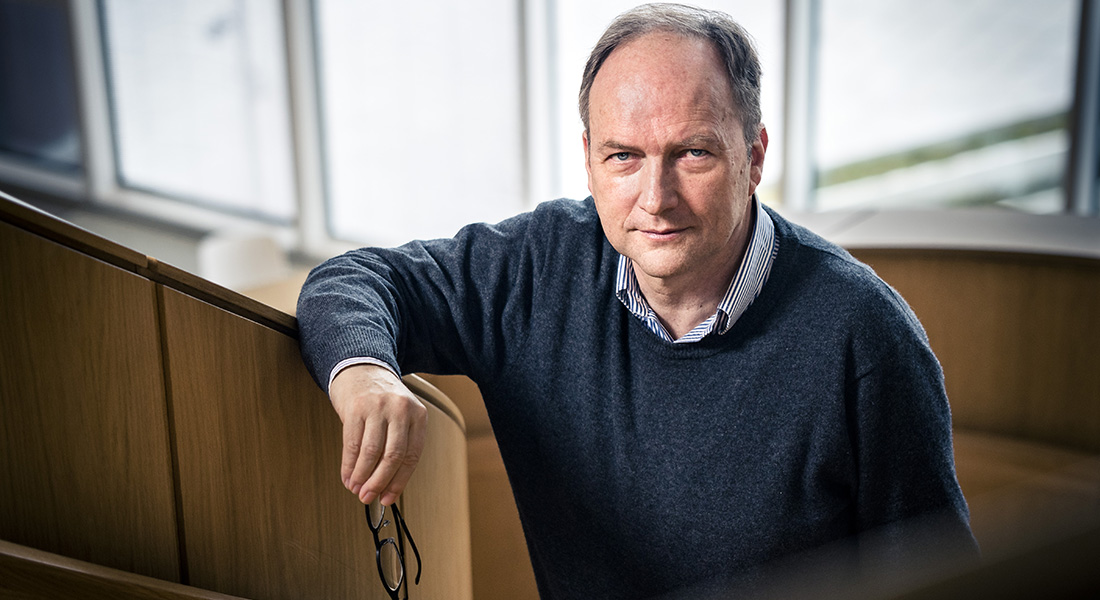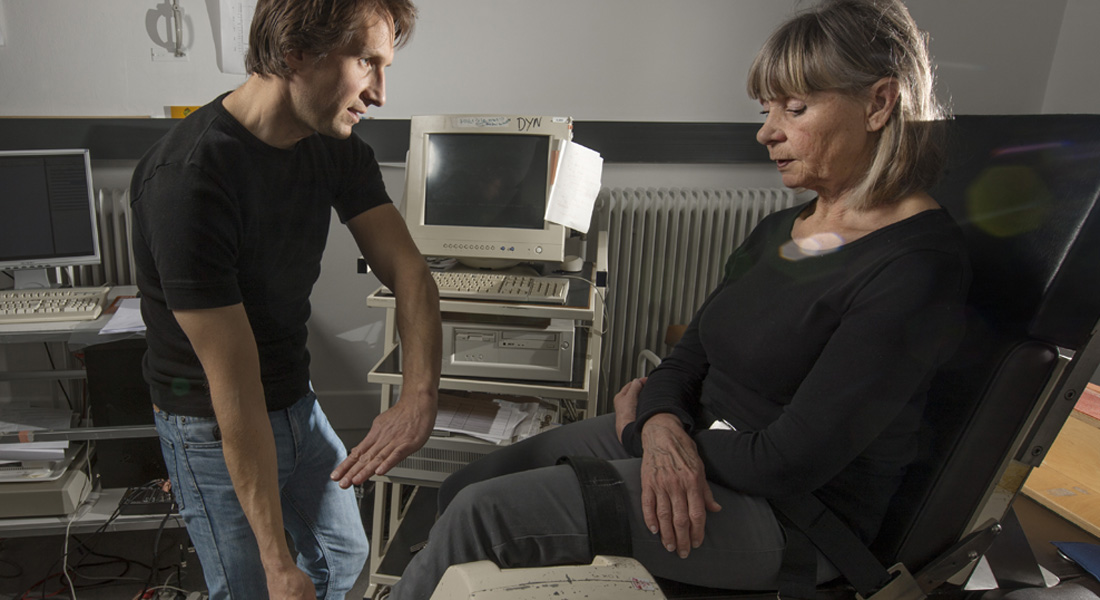Skeletal muscle aging in the Kjær Group
In our group, we work with human and in vitro models to understand how physical activity and mechanical loading can influence both molecular reactions as well as structural adaptation of the musculotendinous tissue. We aim to pertubate the tissue homeostasis in skeletal muscle, tendon and cartilage in order to describe the adaptive responses both in regards to signaling, cell-cell interaction and protein turnover. This is done both in healthy individuals and in chronically diseased individuals. The investigations are done in close interaction with clinically handling of musculo-skeletal injuries in our out-patient clinic.
“Our group has a fascinating mixture of clinicians and researchers often combined in the same person. The interplay between MDs and non-MDs provided a fruitful research outcome,” says Professor and Group Leader Michael Kjær.
Over the last years, our group has contributed to demonstrate a much more dynamic tissue turnover in connective tissues, and pin pointed the detrimental effect upon those tissues with inactivity. Further, the loss of skeletal muscle with aging is explained by the reduced stem cell function, the increased inflammatory status and altered cell-cell interplay. Finally, we have proven that the optimal treatment of tendon overuse injuries is heavy resistance training and that regeneration of skeletal muscle after injury is dependent upon fast onset of rehabilitation.
-
Nampt controls skeletal muscle development by maintaining Ca2+ homeostasis and mitochondrial integrity
Basse, A. L., Agerholm, M., Farup, J., Dalbram, Emilie, Nielsen, J., Ørtenblad, N., Altıntaş, Ali, Ehrlich, Amy M, Krag, T., Bruzzone, S., Dall, Morten, de Guia, R. M., Jensen, J. B., Møller, A. B., Karlsen, A., Kjær, Michael, Barrès, Romain, Vissing, John, Larsen, Steen, Jessen, N. & Treebak, Jonas Thue, 2021, In: Molecular Metabolism. 53, 101271.
-
Adipocytes are present at human and murine myotendinous junctions
Jakobsen, J. R., Jakobsen, N. R., Mackey, Abigail, Knudsen, A. B., Hannibal, Jens, Koch, M., Kjær, Michael & Krogsgaard, Michael R., 2021, (E-pub ahead of print) In: Translational Sports Medicine.
-
Age-related myofiber atrophy in old mice is reversed by ten weeks voluntary high-resistance wheel running
Olesen, A. T., Alchow-Moller, L., Bendixen, R. D., Kjær, Michael, Svensson, R. B., Andersen, J. L. & Magnusson, Stig Peter, 2021, In: Experimental Gerontology. 143, 111150.
-
Chronic Sequelae After Muscle Strain Injuries: Influence of Heavy Resistance Training on Functional and Structural Characteristics in a Randomized Controlled Trial
Bayer, M. L., Hoegberget-Kalisz, M., Svensson, R. B., Hjortshoej, M. H., Olesen, J. L., Nybing, J. D., Boesen, Mikael Ploug, Magnusson, Stig Peter & Kjær, Michael, 2021, In: American Journal of Sports Medicine. 49, 10, p. 2783-2794 12 p.
-
Chronic hyperglycemia, hypercholesterolemia, and metabolic syndrome are associated with risk of tendon injury
Skovgaard, D., Siersma, Volkert Dirk, Klausen, S. B., Visnes, H., Haukenes, I., Bang, Christine Winther, Bager, P., Gravare Silbernagel, K., Gaida, J., Magnusson, Stig Peter, Kjær, Michael & Couppé, Christian, 2021, In: Scandinavian Journal of Medicine & Science in Sports. 31, 9, p. 1822-1831 11 p.
-
Collagens in primary frozen shoulder: expression of collagen mRNA isoforms in the different phases of the disease
Marker, L., Schjerling, P., Mackey, Abigail, Hansen, T., Jakobsen, J., Kjær, Michael & Krogsgaard, Michael R., 2021, In: Rheumatology. 60, 8, p. 3879-3887.
-
Exercise in patients with hip osteoarthritis–effects on muscle and functional performance: A randomized trial
Bieler, T., Kristensen, A. L. R., Nyberg, M., Magnusson, Stig Peter, Kjær, Michael & Beyer, N., 2021, (Accepted/In press) In: Physiotherapy Theory and Practice.
Ongoing projects focus on:
1. Cellular interplay in the regeneration of muscle tissue in aging individuals
2. The hierarchical pathogenesis in tendon tissue with overloading
3. Healing of tendon tissue after rupture and cartilage dynamics in diseased joints
4. Influence of long-term physical training upon overall muscle and brain function with aging.

Group leader
Michael Kjær
Clinical professor
michaelkjaer@sund.ku.dk
Phone: +45 38 63 50 55
CV, Publications, etc.
Group members
| Name | Title | Job responsibilities | Phone | |
|---|---|---|---|---|
| Anne Theil Gates | Postdoc | +4538635676 | ||
| Ching-Yan Chloé Yeung | Postdoc | +4538635190 |
Eksterne forskere
| Navn | Titel | Telefon | |
|---|---|---|---|
| Carl-Johan Boraxbekk | Professor | +45 3863-5190 | |
| Monika Lucia Bayer | Post doc | +45 3863-5873 | |

